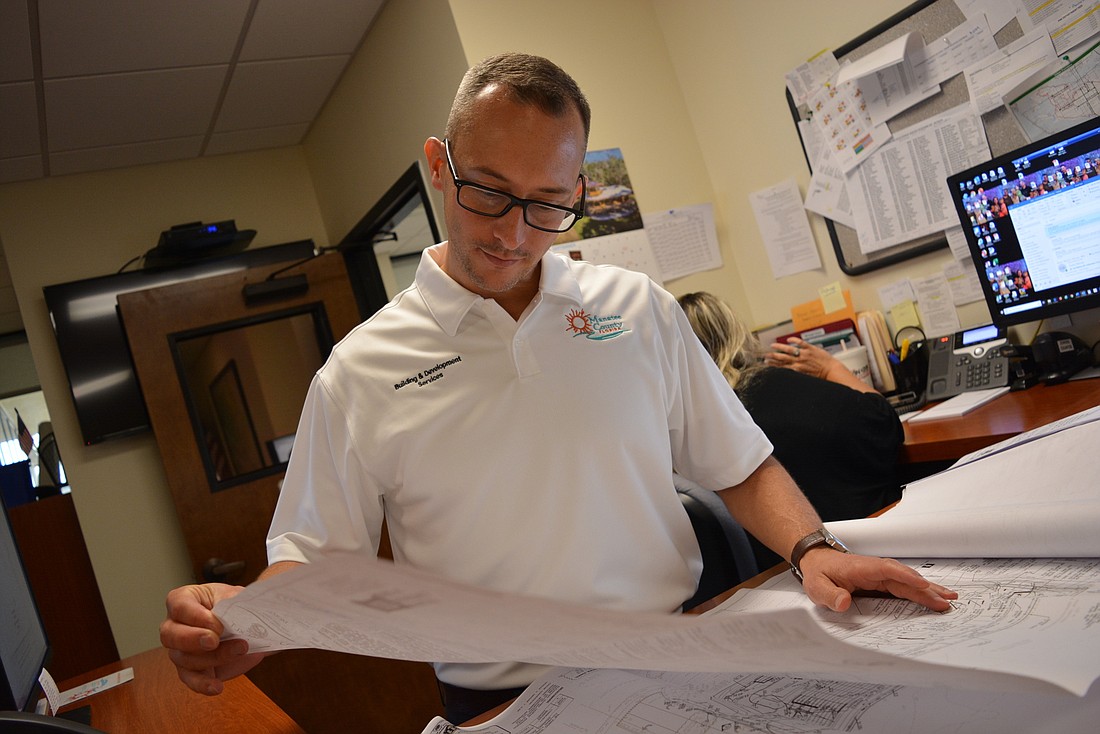- November 15, 2024
-
-
Loading

Loading

Pam Eubanks
Senior Editor
In 40 years of processing development applications, Fred Goodrich, Manatee County’s zoning official and Development Services Division manager, has never seen one done perfectly the first time.
Neither has John Barnott, the director of Manatee County’s Building and Development Services Department.
In the future, however, they might — or at least they might get a little closer to that goal more consistently.
Manatee County is working to better its land development approval process, likely by requiring in-person meetings with developers, improving forms and procedures related to development applications and speeding up timelines for approvals.
The changes are being spurred by House Bill 7103, signed by Gov. Ron DeSantis on June 28. Its biggest impact is the time in which the county is required to approve or deny any particular application. New time limits cap that to 120 days for applications that can be
approved administratively by staff members and 180 days for those requiring public hearings and approval by Manatee County’s county commissioners.
Lawmakers in support of HB 7103 said the bill would help control building costs by expediting approvals. That could help reduce rent and sale prices of new homes.
Goodrich and Barnott said current timelines for approvals vary. Some development applications are processed within a few months, but others can take two years, depending on how quickly applicants respond to comments and address outstanding issues.
Goodrich said he has had applicants “disappear” for six months while staff members waited for answers.
Barnott said if a developer does not respond to questions in a timely matter, it will impact the county’s ability to meet the mandate. Delayed responses might ultimately result in a recommendation of denial if the county doesn’t get the information it needs before its own deadlines.
“We’re going to be reasonable, and we’re going to work with our customers,” Barnott said. “At the same time, we have to meet our deadlines.
“Our folks are working hard,” he said. “It’s our task to process our applications and make sure it’s legally correct.”
Barnott said the county-level changes coming should help his department get the information it needs from applicants faster and will spell out expectations for applicants, who will have to provide information. The bill prohibits the county from seeking more than three rounds of comments before it must make an approval decision, even if the applicant does not answer questions. Barnott said that might dictate a denial, but such an outcome would be addressed in the new policies.
Addressing the new timeline likely might require more staffing.
Barnott said the county currently has four planners for public hearing cases, each with more than 20 applications, and the administrative planners each are juggling more than 30 applications.
At-Large Commissioner Betsy Benac, an experienced planner, said she hopes the county will use the changes as an opportunity to further simplify the county’s Land Development Code, which spells out the rules by which development can occur.
Commissioner Misty Servia said she supported increasing staff as needed.
“We need more planners, and I’m sure we can use another land-use attorney,” she said. “I’d like to see the county attorney’s office prioritize this.”
Barnott said the county last evaluated its development application in 2007.